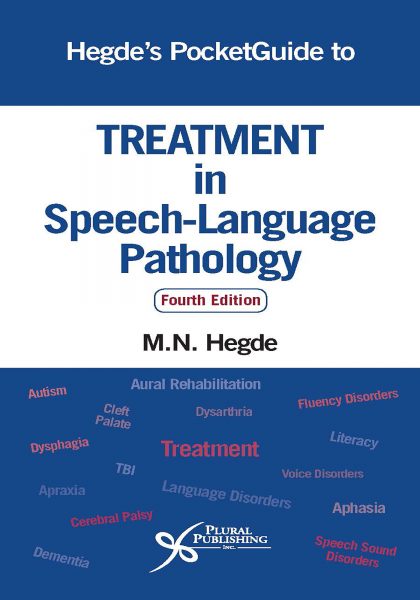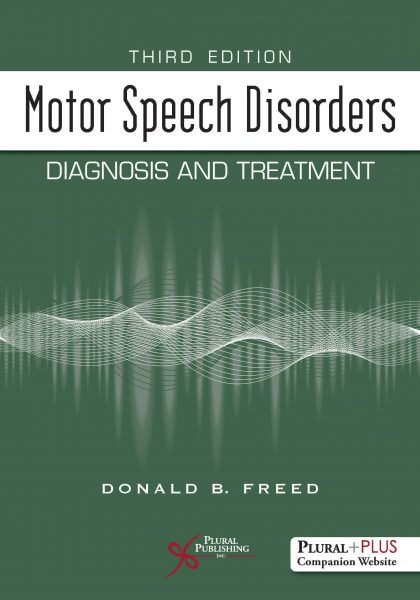About The Book
Here’s How to Treat Childhood Apraxia of Speech, Third Edition offers clinicians and students of speech-language pathology (SLP) a comprehensive look at the assessment, differential diagnosis, and treatment of childhood apraxia of speech (CAS). This book helps guide the SLP on which assessment tasks will provide the information needed to make a confident diagnosis of CAS at different stages of development, as well as best practices for treatment of CAS.
The authors take a deep dive into application of evidence-based treatment strategies for children with CAS, and move beyond theoretical ideas to provide recommendations of specific activities to facilitate improved speech praxis in children across age groups, making this book extremely informative and practical. This latest edition maintains the original intention of the prior editions—to provide clinicians and students with a holistic look at the complex needs of children with CAS and to offer practical ideas for evaluation and treatment. The amount of new research over the past several years has been substantial. Fortunately for the readers, Here’s How to Treat Childhood Apraxia of Speech, Third Edition summarizes the most current research regarding the nature of CAS, best practices in evaluation, and effective treatment strategies to give clinicians greater confidence in working with children with this complex speech disorder.
New to the Third Edition
- Updates to reflect the current research findings related to the genetic and neurogenic correlates of CAS, as well as the features of CAS that are most sensitive and specific to consider when making a differential diagnosis
- New chapters on unique needs of children with co-occurring challenges, such as ADHD, dysarthria, and developmental coordination disorder, and treatment of CAS via telepractice
- PluralPlus online ancillary resources with downloadable forms and videos
From the Foreword by Dr. Edythe A. Strand:
“The breadth of this book is large and will therefore be of interest to a variety of audiences. Students and clinicians will find many of the practical strategies and worksheets provided to be extremely helpful in their clinical practice. Parents will find it useful for understanding the nature of their child’s speech problem and feel empowered by the authors’ emphasis on including parents in the management of their child’s speech problems.”
About The Authors
Margaret Fish, MS, CCC-SLP, is a speech-language pathologist working in private practice in Northbrook, Illinois. She has 40 years of clinical experience working with children with severe speech-sound disorders, language impairments, and social language challenges. Margaret’s primary professional interest is in the evaluation and treatment of children with childhood apraxia of speech (CAS), and she presents workshops on topics related to CAS across the world. Her workshops and writing focus on providing practical, evidence-based evaluation and treatment ideas to support children with CAS. Margaret serves on the Professional Advisory Council for Apraxia-Kids.
Amy Skinder-Meredith, PhD, CCC-SLP, is a Clinical Professor at the Elson S. Floyd College of Medicine at Washington State University-Spokane, where she is the founder and director of Camp Candoo, an intensive summer program for children with CAS. She has been an SLP for over 30 years and has worked in the public schools, hospitals, university clinics, and private practice settings. She has published and presented her research on CAS at national conferences, has given over 100 workshops for practicing speech-language pathologists across the U.S. and internationally on assessment and treatment of CAS, and is on the Professional Advisory Council for Apraxia-Kids. She enjoys the continuous learning that comes with working with kids with CAS as they evolve from early childhood to adolescence.
Table Of Contents
Foreword by Edythe A. Strand, PhD, CCC-SLP
Acknowledgments
Chapter 1. Understanding Childhood Apraxia of Speech
Chapter 2. Assessment and Differential Diagnosis of Childhood Apraxia of Speech
Chapter 3. Fundamentals of Treatment for Childhood Apraxia of Speech
Chapter 4. Evidence-Informed Decision Making in Treatment of Childhood Apraxia of Speech
Chapter 5. Establishing Vowel Accuracy and Natural Prosody
Chapter 6. Facilitating Speech and Language in Minimally Verbal Children
Chapter 7. Addressing Early Literacy Concerns in Children with Childhood Apraxia of Speech
Chapter 8. Supporting the Needs of Older Children with Ongoing Communication Challenges
Chapter 9. Treating Children with Co-Occurring Disorders
Chapter 10. Considerations in Treatment of Childhood Apraxia of Speech Via Telepractice
Chapter 11. The Changing Needs of Children Over Time
Chapter 12. Developing Meaningful Goals and Collecting Data
Chapter 13. Partnering With Parents to Maximize Treatment Outcomes
Glossary
Index
Only logged in customers who have purchased this product may leave a review.






Reviews
There are no reviews yet.